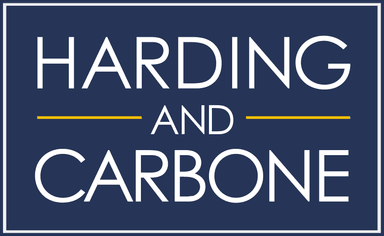
How To Manage Property Taxes In Harris County
September 8, 2025
Key Takeaways:
- Tax System: Harris County property tax is based on appraised value and multiple local tax rates, making accurate valuations critical.
- Exemptions: Homeowners may qualify for exemptions such as homestead, over-65, disability, and veteran, reducing taxable value.
- Protest Process: Filing a timely protest with strong evidence can lower inflated valuations and save property owners money.
For over 50 years, Harding & Carbone has been a leader in property tax services across Texas, representing thousands of property owners and saving clients millions of dollars. With deep roots in Houston and a reputation for professionalism and results, our firm has built a trusted name in navigating the complexities of property tax law.
Harris County, one of the largest and most diverse counties in Texas, is home to a property tax system that can feel daunting to residents and business owners alike. Appraisals, exemptions, protests, and deadlines all play a role in determining how much you’ll ultimately pay each year. Understanding how this system works is not just beneficial, it’s essential for managing your financial obligations effectively and avoiding costly mistakes.
In this piece, we will be discussing how to manage Harris County property tax, from understanding the appraisal process to exemptions, protests, and where your tax dollars go.
The Harris County Property Tax System
Managing property taxes in Harris County begins with understanding how the system works. Every year, the Harris County Appraisal District (HCAD) determines the market value of properties as of January 1. This value is intended to reflect what a property would sell for under normal market conditions. Factors such as recent sales in the area, improvements or changes made to the property, and general market trends are taken into account during this assessment.
Once this valuation is complete, property owners receive a Notice of Appraised Value, usually in April. This notice outlines the appraised value that will be used to calculate the tax bill. Reviewing this document carefully is important because the figure directly impacts how much you will owe.
If you believe the appraisal does not accurately represent your property’s value, you have the right to challenge it. The deadline for filing a protest is typically May 15, or 30 days after the notice is mailed, whichever is later. Missing this deadline could mean losing the chance to correct an inflated valuation and avoid paying more than you should.
Take control of your Harris County property taxes with the trusted experience of Harding & Carbone. Our decades of proven results make us the partner property owners rely on year after year.

How Property Taxes Are Calculated In Harris County
The amount you owe in property taxes depends on a combination of your property’s taxable value and the tax rates set by multiple entities across the county. The process begins with the market value assigned by the Harris County Appraisal District. From this appraised value, exemptions for which you qualify are subtracted to arrive at your taxable value.
Harris County property taxes are not determined by a single rate. Instead, they are made up of combined rates from various jurisdictions, including the county, school districts, cities, and special districts such as flood control or hospital districts. Each entity sets its rate based on its annual budgetary needs, and the total of these rates is applied to your property’s taxable value.
For example, if a property has a taxable value of $250,000 and the combined tax rate is 2.2%, the annual tax bill would be $5,500. This structure means that both the accuracy of your appraisal and awareness of available exemptions are critical in keeping your property tax bill as fair as possible.
Key Exemptions Available In Harris County
Property owners in Harris County have access to several exemptions that can reduce their taxable value and lower their annual tax bill. Here are the most common options:
Homestead Exemption
This exemption applies to a homeowner’s primary residence and reduces the taxable value of the property. For many households, it translates into substantial annual savings, often in the hundreds or thousands of dollars. To qualify, you must occupy the home as of January 1 of the tax year and not claim a homestead exemption on another property.
Over-65 Exemption
Homeowners who are 65 or older can qualify for this additional exemption, which lowers their taxable value and may freeze school district taxes. The freeze prevents these taxes from increasing for as long as the owner lives in the home, offering predictable and long-term relief. Some local taxing units may also provide further discounts for senior citizens.
Disabled Veterans Exemption
This exemption is available to military veterans with a service-related disability, and the amount of relief depends on the disability rating. Veterans with a 100% disability rating can often receive a full exemption from property taxes on their primary residence. This exemption helps ease financial pressure for those who have served and are now living with significant health challenges.
Disability Exemption
Individuals with qualifying disabilities may be eligible for this exemption, which functions similarly to the over-65 exemption. It reduces the taxable value of the home, offering important relief for those on fixed incomes or with high medical expenses. Like other exemptions, it requires an application with supporting documentation to the Harris County Appraisal District.
From appraisal protests to comprehensive tax management, our services are designed to protect your interests and reduce unnecessary costs. Let our experts handle the process while you focus on what matters most.
The Role Of Harding & Carbone
Challenging a property tax assessment can feel overwhelming, especially if you’re unfamiliar with how the appraisal process works in Harris County. That’s where Harding & Carbone provides valuable support. With decades of experience handling property tax matters, the firm is equipped to guide homeowners and businesses through every stage of the protest process.
Comprehensive Representation
Harding & Carbone manages the entire protest process on behalf of clients. From filing the protest to appearing before the Appraisal Review Board (ARB), the firm advocates for a fair and accurate valuation of your property.
Data-Driven Approach
Using in-depth market research and property data, the team builds strong cases for reduced valuations. This analytical approach provides the evidence needed to challenge inflated appraisals effectively.
Personalized Guidance
Every property and situation is unique, so Harding & Carbone provides tailored advice to match each client’s needs. Clear communication and local knowledge ensure that clients understand their options and receive informed recommendations throughout the process.
Steps To Protest Property Taxes In Harris County
Property owners who believe their appraisal is too high have the right to file a protest. Following the correct steps and deadlines is key to presenting a strong case.
Review Your Appraisal Notice
Each spring, the Harris County Appraisal District sends appraisal notices. Compare the assessed value of your property with recent sales in your area or the condition of your home. Identifying discrepancies early helps form the basis of your protest.
File Your Protest
Protests can be filed online through the HCAD website or by submitting the official form by mail. The deadline is usually May 15, or 30 days after the notice was mailed, whichever date comes later. Filing on time is essential to keep your rights intact.
Gather Evidence
Collect documents such as comparable sales, property condition photos, or an independent appraisal. The stronger your evidence, the more likely you are to convince the appraisal district or review board that your valuation is inaccurate.
Attend The Informal Meeting
HCAD may offer an informal meeting to discuss your case with an appraiser. Many disputes are resolved here, but if no agreement is reached, your protest will move to a formal hearing.
Present At The ARB Hearing
During the Appraisal Review Board hearing, you’ll present your evidence and make your case for a lower valuation. Concise, fact-based arguments carry the most weight.
Consider Professional Help
Many property owners choose to work with professionals like Harding & Carbone. Experienced representation can make the process smoother and improve the chances of a favorable outcome.
Where Do Your Property Taxes Go?
Property taxes collected in Harris County are vital to funding the services that keep communities running. While they often feel like a heavy burden, these dollars directly support essential functions that impact daily life.
Public Education
A significant share of property taxes goes to local school districts. These funds help pay for teacher salaries, maintain school facilities, and support educational programs for students across Harris County.
Emergency Services
Police, fire departments, and emergency medical services rely heavily on property tax revenue. These resources ensure communities have protection and quick response in times of need.
Infrastructure Maintenance
Roads, bridges, and drainage systems require ongoing upkeep. Property tax dollars provide the funding for repairs, improvements, and long-term infrastructure planning.
Health And Community Services
Hospitals, public health initiatives, and programs run by Harris Health System receive part of their funding through property taxes. These services play a crucial role in maintaining community wellbeing.

Final Thoughts
Managing property taxes in Harris County starts with understanding how the appraisal process works, knowing which exemptions apply, and being proactive about protesting when necessary. With valuations directly tied to your tax bill, even small inaccuracies can lead to significant overpayments if left unchallenged.
Harding & Carbone provides property owners with the resources and representation needed to navigate this process effectively. By combining detailed market analysis, years of local experience, and personalized service, the firm helps ensure property owners aren’t paying more than they should.
Taking the time to review your appraisal, explore available exemptions, and seek professional guidance when needed can make a lasting difference in your financial planning. With the right approach, Harris County property taxes become something you can manage with clarity and confidence.
Ready to take the next step in lowering your property tax burden? Connect with our team today through our contact page and get started with professional guidance built on over 50 years of experience.
Frequently Asked Questions About Harris County Property Tax
What is the deadline to pay Harris County property taxes?
Property taxes in Harris County are due by January 31 each year. Payments made after this date begin to accrue penalties and interest.
Can property taxes in Harris County be paid in installments?
Yes, qualifying property owners such as seniors or those with disabilities may pay in installments. You’ll need to contact the Harris County Tax Office to set up a plan.
What happens if Harris County property taxes are not paid?
Unpaid taxes lead to increasing penalties and interest, and eventually a tax lien may be placed on the property. In extreme cases, this can result in foreclosure.
Are property tax rates in Harris County the same across all areas?
No, the overall tax rate varies depending on your property’s location. Each jurisdiction, such as school districts or special districts, sets its own rate.
How does a property owner apply for an exemption in Harris County?
Exemptions are requested by submitting an application through the Harris County Appraisal District. Supporting documents are usually required to verify eligibility.
Can I appeal my Harris County property taxes every year?
Yes, you may file a protest annually if you believe your property’s valuation is too high. Each year’s appraisal is considered separately.
Do commercial properties qualify for exemptions in Harris County?
Some exemptions are limited to residential properties, such as the homestead exemption, while others like those for certain nonprofit or religious uses may apply to commercial properties.
How do new homebuyers handle property taxes in Harris County?
New homeowners typically receive a prorated tax adjustment at closing. After purchase, it’s important to apply for any exemptions you qualify for by the following January.
Does Harris County offer property tax deferrals?
Yes, homeowners who are over 65 or disabled may qualify for a deferral program, allowing them to postpone tax payments until the property is sold.
Are there online tools to estimate Harris County property taxes?
Yes, the Harris County Tax Office provides an online estimator where you can enter your property’s appraised value and see an approximate annual tax bill.
